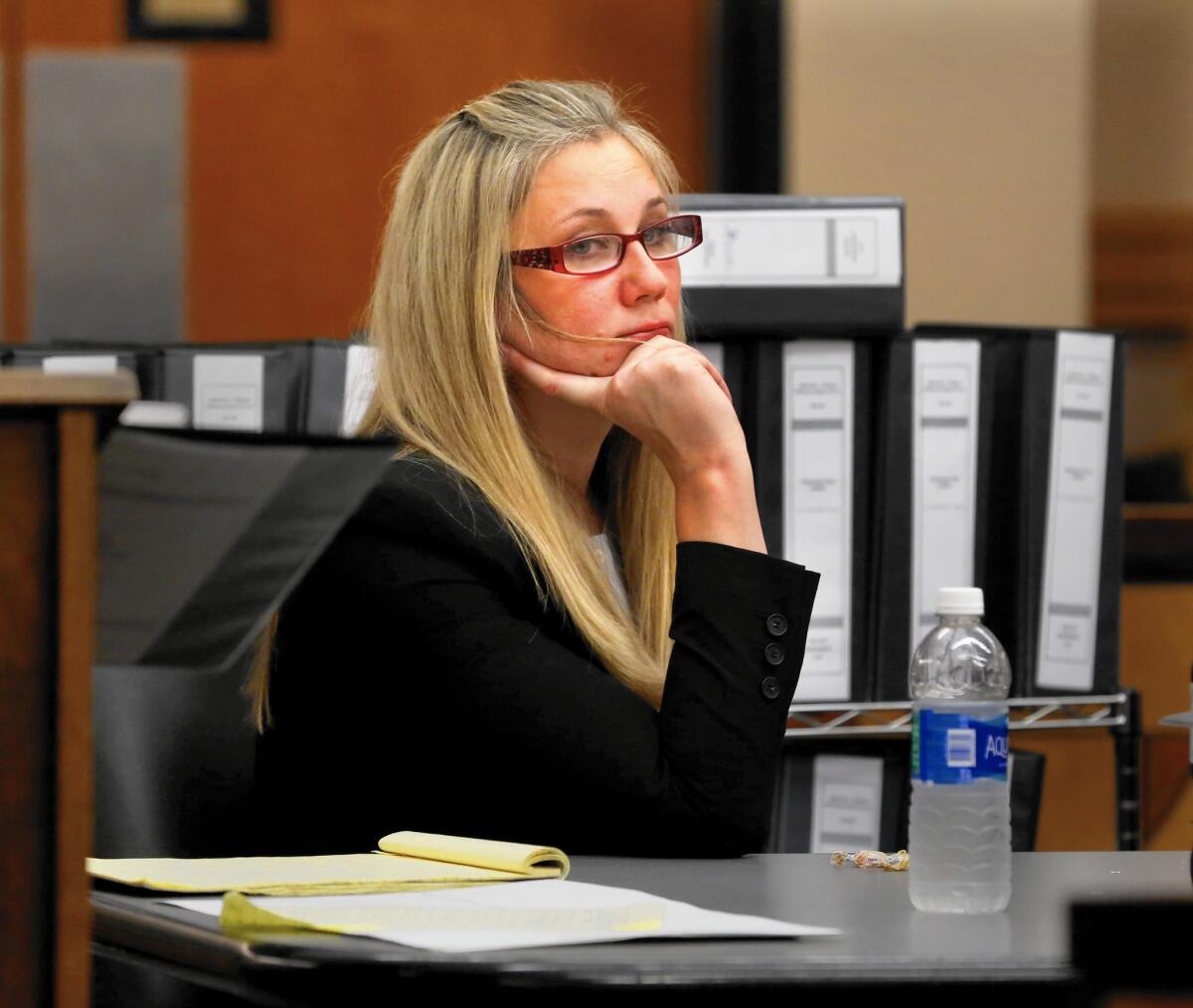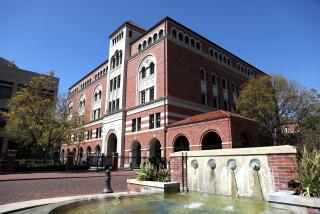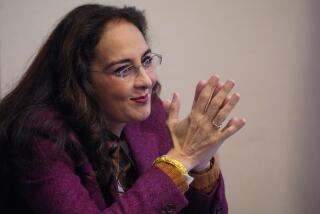Trial raises questions about San Diego law school’s claims on graduates’ success

A trial that may determine whether a Southern California law school overstated the success of its graduates has landed at the center of a national discussion over how law schools have marketed themselves.
The claims aren’t isolated to San Diego’s Thomas Jefferson School of Law, but this is the first such case to go to trial, which started this week.
The suit against the school is one of 15 filed nationwide by students who said they enrolled after being enticed by their schools’ records of producing graduates who found quality jobs in the legal field.
The plaintiffs argued that the claims contradicted reality. Hiring in the legal field reportedly has been flat over the last two decades, in part because more people are using online legal services, software or paralegals to handle tasks that once required lawyers.
Judges in all cases have denied class-action status for the lawsuits, including the one against Thomas Jefferson, which originally had numerous plaintiffs and sought $50 million.
The judge hearing the San Diego case did allow it to continue as a civil suit by one Thomas Jefferson graduate seeking $125,000 and unspecified punitive damages.
Attorney Brian Procel, representing Anna Alaburda, said his client is asking for a reimbursement and estimated lost wages during the time she took off to study in the three-year law program.
Procel will try to convince the jury that Alaburda, 37, decided to quit her $30,000 job in the pathology department at USC and move to San Diego because she believed that a law degree from Thomas Jefferson was a pathway to a better-paying career.
“She would not have gone there if she knew the truth,” Procel said of Alaburda, who he said graduated with honors in 2008 and passed the state bar exam on her first try but has never worked in a full-time, salaried job as an attorney.
Michael Sullivan, the attorney representing Thomas Jefferson, said in his opening statements that the school wasn’t responsible for how data were compiled in national rankings and employment statistics. He further questioned whether the information even played a role in Alaburda’s decision.
“The reason she went to Thomas Jefferson School of Law was that it was the only law school she was admitted to,” he said.
Alaburda began questioning the school’s tactics after reading a 2011 article about law school graduates struggling with student loan debts, Procel said. The article focused on a Thomas Jefferson alum who had $250,000 in student loans and no full-time job and recalled seeing promotional material that boasted about the high employment rates of graduates.
Alaburda had seen similar statistics about employment rates when deciding which school to attend, Procel told jurors. He said an analysis of the numbers has revealed they were overstated.
Procel focused on the annual report of law schools compiled by U.S. News & World Report, which he said Alaburda researched before choosing Thomas Jefferson. The 2005 edition of the report said 54% of the school’s graduates were working in law firms and 22% were working in the legal field. Overall, the school had an 84.1% employment rate for graduates, just below the national average.
Procel said those employment figures included jobs as bartenders, waiters and pool cleaners. “You don’t want to go to law school and spend $100,000 for one of those jobs,” he said.
He told jurors he would produce an email from the former dean instructing others to refer to working graduates as professionals in surveys even if their actual jobs were unknown. He also said he would produce a handwritten document from an administrator saying she had been trained to manipulate numbers.
Sullivan, the school’s attorney, said that some clerical mistakes were made, but that they were minor, unintentional and fewer than Procel alleges. “Thomas Jefferson Law School’s data was overwhelmingly accurate,” he said.
He questioned the claim that Alaburda had trouble finding work after graduation, noting that she acknowledged turning down a $60,000 offer from a San Bernardino law firm. She did accept a $70,000 job with a legal publisher, a position Sullivan said she got because she had a law degree and had passed the bar.
“She was not damaged,” he said. “She got a job more than double what she was making.”
Sullivan also questioned the $125,000 amount sought in the case because Alaburda had a scholarship that brought her three-year tuition to $30,000.
Among the people following the lawsuit is Kyle McEntee, executive director and co-founder of the nonprofit Law School Transparency, based in North Carolina.
Many law schools, he said, used to “state employment rates of 90, 95, even as high as 100%. But that included short-term jobs, part-time jobs, jobs funded by the law schools and even nonprofessional jobs like a barista at Starbucks.” Some schools also advertised graduates earning starting salaries of $160,000, but those were based on surveys that had very low response rates, he said.
“They wanted to boost enrollment,” he said of the practice, which he said predated the Great Recession.
After studies by Law School Transparency, McEntee said the American Bar Assn. revised its requirements for information that law schools provide to students.
They now must say whether graduates’ jobs are full-time or part-time and whether they require a law degree, he said. They also are prohibited from providing any information that could be considered deceptive, misleading or incomplete. The new rules were put in place in 2012.
“We have successfully eliminated the issue,” he said. “That’s not to say that Anna does not deserve to win. But someone who is applying now has a much better shot of making an informed decision.”
ALSO
Why UCLA gymnasts’ videos keep going viral
L.A. County animal control to ‘dog whisperer’ Cesar Millan: Show us the pig
Obama at SXSW: ‘The reason I’m here really is to recruit all of you’






